By the skin of our teeth
Phew! Having arrived in Lisbon on December 20th concurrent with the announcement that estrangeiros were being banned, my wife and I headed for the Covid-19 testing centre so we could spend Christmas and New Year looking after my poorly Mother in Law. Imagine our relief as we caught the last flight back to the UK (and a period of self isolation) on January 4th before the cancellation of all flights.
While there I’d prepared my first Presidential message to the 10k+ members of the Chartered Institute of Libraries & Information Professionals (CILIP). In it I’d set out a few objectives and I’m delighted to note that a couple are underway.
The first of my “Presidential Musings” is about to be published in CILIP’s flagship publication Information Professional. “To certify or not – the value of an ISO standard?” features a couple of highly respected senior managers who give their thoughts on how organisations might seek assessment against ISO 30401. Patricia Eng was an obvious choice, being the first globally accredited ISO KM Auditor and the former head of KM for a national regulatory body, as was Carol Aldridge, one of the few KM professionals I know of who has introduced ISO standards into her organisation. Carol’s summary comment is very apposite:
“Demand may come if and when organisations see this standard as a convenient means for evaluating suppliers’ KM performance as well as a framework for assessing their own.”
And the good news is that subscribers (CILIP members) can now view this via a downloadable app.
“Don’t know how to be poor”
A very busy month followed: 4 days of masterclasses, a couple of board meetings, numerous Zoom calls, a webinar on search, plus 2 Cobra meetings in my home town Eastbourne to discuss the ongoing pandemic.
From relative obscurity and a very low rate of Covid-19 cases per 100k Eastbourne entered the top 10 of most affected areas in the UK with an average of nearly 1k cases per 100k. Civic leaders and health professionals attributed it to:
- An influx of day trippers driving to the South Downs National Park to meet friends
- A large proportion of blue collar manual workers unable to work from home
- An influx of homeless people from outside the borough being housed in local hotels
A campaign to change behaviours around the use of masks while shopping and fuelling the car is being put in place since 30% of cases were attributable to those activities.
Perhaps most worrying is the dramatic rise in demand from working class families seeking assistance to feed their children and too proud to visit food banks. As one of the volunteer group leaders put it, “they don’t know how to be poor” and need a lot of assistance and direction from volunteer groups to signpost them to the help that’s available.
The good news is our local vaccination programme is ahead of schedule (my 93 year old mother had the jab in December) and collaboration, between everyone involved in the supporting the local community, remains excellent.
Osmotic learning
One of my Zoom catch up chats was with the engaging Ian Rodwell of Linklaters. We talked about how in a virtual environment you might recreate the serendipitous encounters that are often the source of new ideas and connections. Ian is working on something he describes as “Scheduled randomness” – watch this space for more, and as Head of Client Knowledge & Learning his focus is on Osmotic Learning. “Lockdown Learning” and “Return to the Office Toolkit” are recent outputs.
Ian’s challenges are I imagine mirrored by many: how to maintain lockdown momentum, motivation and focus in a virtual environment; how to build on the extended reach that tools such as Zoom and Teams provide; and how to keep the contributions (top tips) coming from officers.
I heard similar concerns about keeping up momentum expressed in a subsequent conversation with another global Knowledge Manager. We talked about the difficulties of managing across continents and time zones, of maintaing peripheral vision while facilitating virtually and encouraging contributions from junior members of staff. She noted one downside of Teams is that it can create silos.
Being remotely human
Having introduced Dr Bonnie Cheuk to the members of CILIP’s K&IM SIG I wanted to be sure to attend the webinar she ran a few weeks back entiled: “Digital transformation, learning and development and knowledge management: is the line blurring“. I was glad I did.
Bonnie’s title is is Senior Business and Digital Transformation Leader, AstraZeneca. So much of what she does is around facilitation and creating an environment for knowledge sharing to occur. I had the pleasure of working with her and members of her team a couple of years ago during the transformation of the business and know how important a number of the initiatives she put in place were in accelarating changing ways of working. The unprecedented discovery and production of the AZ/Oxford Covid-19 vaccination is a great example of more agile working and effective use of tools such as “Pause & Reflect”, “Working out Loud” and “Paying it Forward”.
I was particulalry drawn to her example of creating a regular online hangout around the virtual global watercooler as an attempt to redefine learning and unlearning and create a human space in a remote environment. More on that in the future, below is a sneak preview!
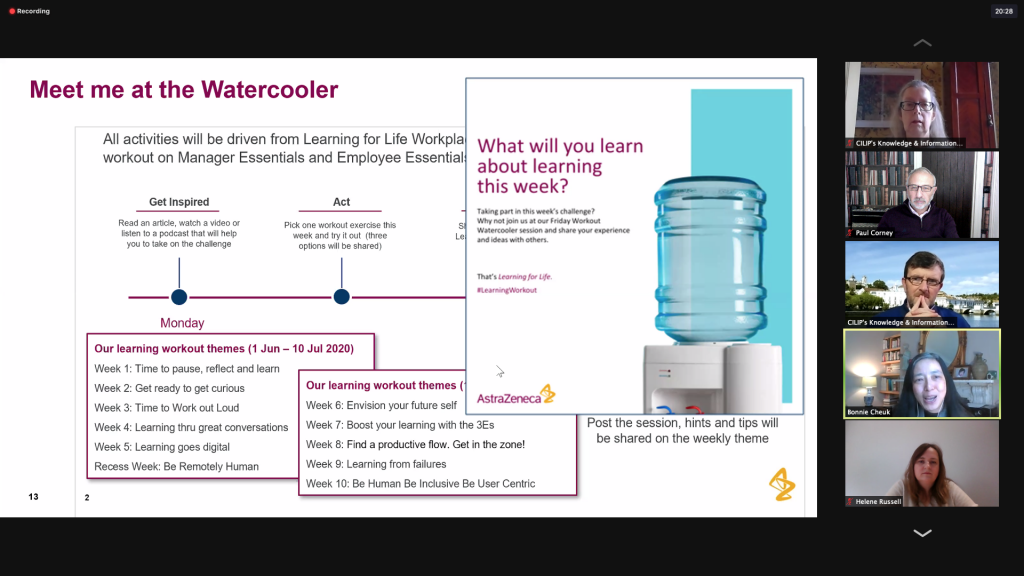
Agile KM
While on the subject of Agile working, Chris Collison and I had the great pleasure of running a “behind the firewall” KM Cookbook Masterclass over a couple of days for the Agile Business Consortium’s senior leadership team and board. Using a combination of Zoom and Mural we used the KM Canvas to address issues that will arise as they develop their KM capacity.
What stood out to me, apart from how smart they all were, was the ease with which they navigated the canvas and how rapidly and candidly they were able to identify gaps and needs.
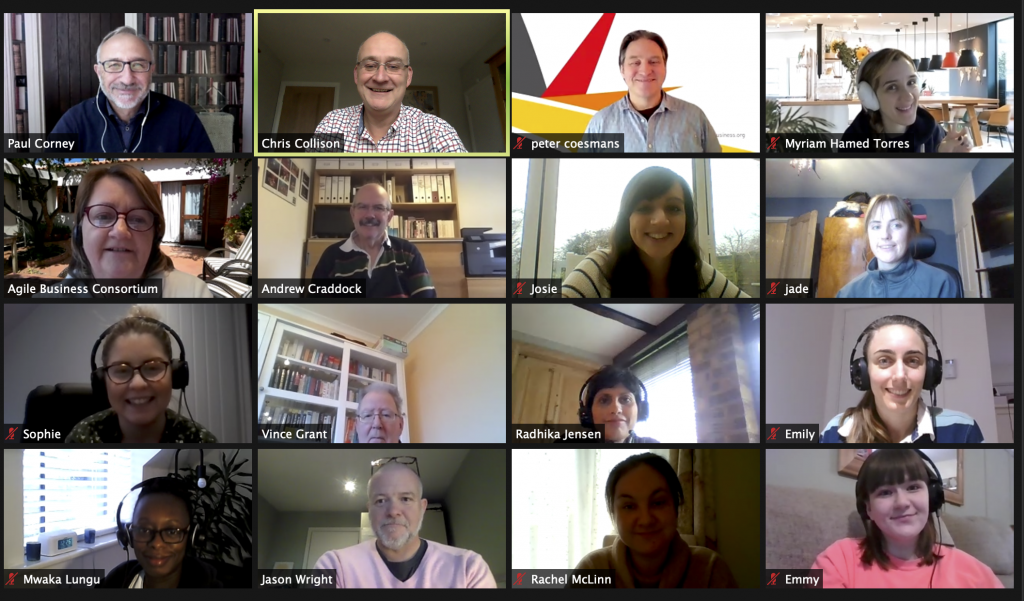
Professionalising KM
Much work has been going on in the health sector. Apart from Chris Collison and my masterclasses with Public Health England, Health Education England (HEE)’s Library & Knowledge Services, who have been doing an amazing job providing evidence based knowledge to front line workers, recently launched a five year strategic framework Knowledge for Healthcare Mobilising evidence; sharing knowledge; improving outcomes. Led by Sue Lacey Bryant, a CILIP Trustee and the 2018 winner of the Walford Award, it is very much at the core of a drive to professionalise Knowledge and Library Services across the health industry. Who can argue with this:
Knowledge and evidence are business critical because the quality of care, patient safety and service transformation is underpinned by informed decision-making.
In fact, HEE helped fund the enhancement and rewrite of CILIP’s Professional Skills and Knowledge Base (PKSB) which is due to be launched to the profession in Q2 this year. HEE use it as a core tool for helping to develop its professional staff. Mapped to ISO KM Standards 30401, it is a major development and goes a long way to providing a set of core competences against which to benchmark a knowledge professional’s development.
“In conversation with…”
l’ve begun the initiative of direct engagement with CILIP’s members I flagged in my presidential message. These chats have been both enjoyable and heartwarming; hearing the stories of people coping and thriving in a pandemic will hopefully inspire others. I will be summarising these conversations in my regular column in Information Professional.
And finally
Ahead of the recent round of Virtual Mezze Masterclasses we asked participants to imagine they were at dinner with a partner.
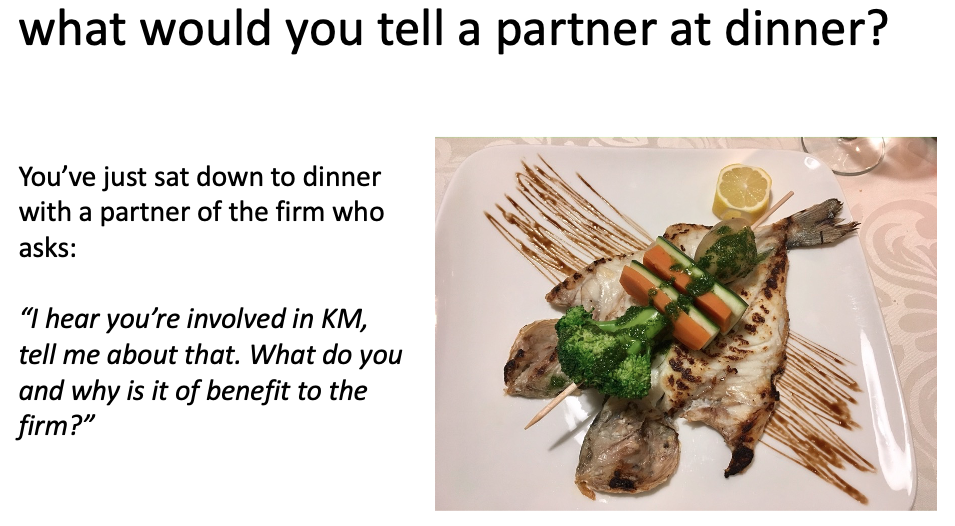
The responses from many KM ‘newbies’ were hugely insightful. Here’s a selection:
Knowledge Management is about leveraging information, knowledge, experience and connectivity, it can speed up processes and learning allowing you to start off on the best foot and be creative.
How to ensure that knowledge and experience of every individual in a community is shared in such a way that 1+1=3
Bringing together knowledge and evidence from across a range of sources and synthesising this to enable easy interpretation.
Knowledge management is really important to everyone because it helps us all to do our jobs and keep our organisation running. Imagine if there hadn’t been any guidance or procedures, when you first began your job. How would you know how to do it? Capturing the knowledge and experience of others that have come before is important for this. But equally important is that you know where to find it – even starting with knowing that it exists. So, having a structure and knowing how to use both the structure and the information is very important!
Without it I guess we’d keep re-inventing the wheel or the flat tyre. Time consuming!
This, from Aku Sorainen senior partner of one of the most successful European law firms, and a reviewer (a “restaurateur”) of The KM Cookbook, neatly sums up the value of KM to knowledge based institutions.
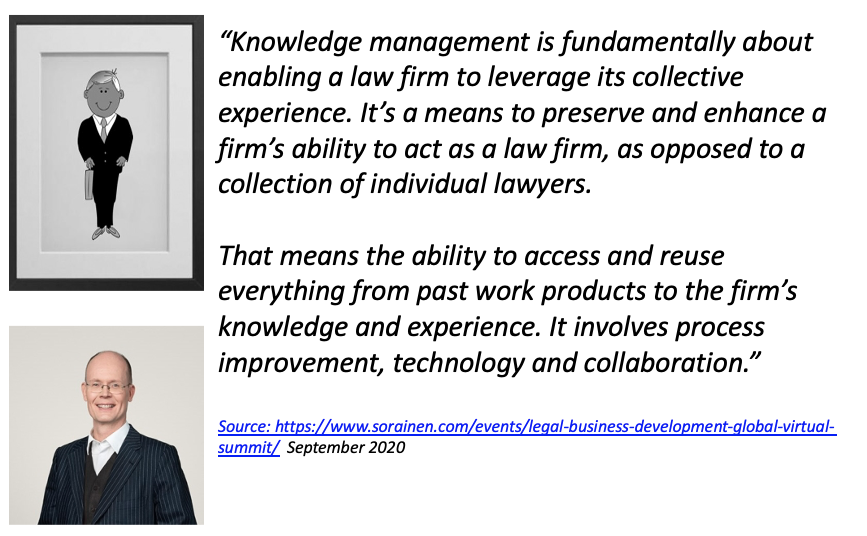





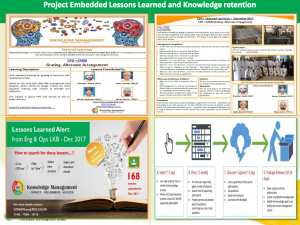

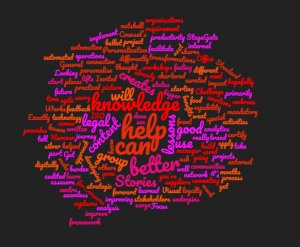 I thought it might be interesting to run the top tweets from #KMSummit18 through a wordle to see what stood out. Interestingly it did not surface any of the 4 words that arose from my conversations:
I thought it might be interesting to run the top tweets from #KMSummit18 through a wordle to see what stood out. Interestingly it did not surface any of the 4 words that arose from my conversations:
